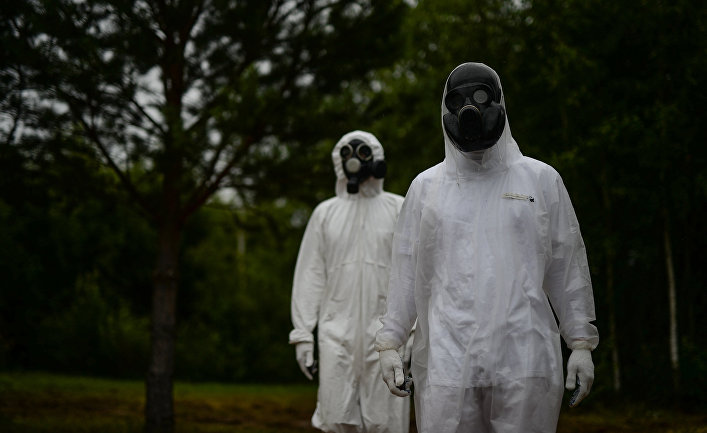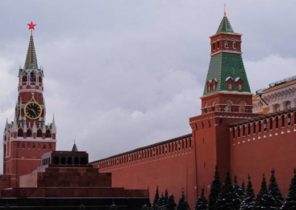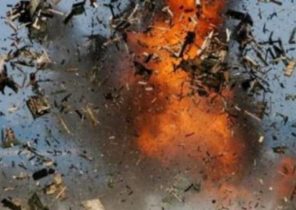
East Windsor (new Jersey) — Masks, which gave me and others the Soviet first-graders in 1987, left over from the Second world war. Made from tough rubber, they were too big for our faces. the Mask accumulated moisture, but the world it was reduced to two circles of steamy, jumping in front of my eyes. The teacher not told in advance that we will have exercises with gas masks — she just gave them, and we blindly went to them March around the school, and then returned to class. None of us were asking what we are training. This was not necessary.
Even before school we knew that the United States and its Western allies plan to harm us, pupils of school № 3 Ukrainian city of Kharkiv. The only thing we had left was to wear gas masks.
The coming attack of the capitalists was one of the many threats that have been prepared Soviet child, even in the last years of the Soviet Union. For survival under the dictatorship had its own standard rules: don’t trust anyone except family; never attract the attention of the police; always be a patriot. And there were rules for Jews only: don’t say people words like synagogue; don’t tell family stories to neighbors who are not Jews. Anti-Semitism kept pace with the General concerns of the society; by 1989, my family and thousands of others were forced to leave the country.
In real life there are countless numbers of “no”. There wasn’t much difference between the dangers visible and invisible, real and fictional. Gonna play with the knife to cut yourself. Will give the other a knife instead of putting it on the table, and then he will take it — and your friendship will wither. You were not protected and vulnerable on the streets, in my apartment, in my own mind. Unhappiness, signs, working on secret weapons, the Americans and looking for traitors, KGB — it was an integral part of the unfriendly atmosphere.
The only relief was given to sarcastic and cynical satire, which he called jokes. It was an anonymous prank, spread with dizzying speed, often as a response to current events, such as today’s memes. What is the difference between an optimist and a pessimist? A pessimist believes life will be worse. But the optimist knows it. “Both are worse” was a typical response to the question of which thing is better. The answer to this could be sincere, sarcastic, or both at the same time. That was a dark coping mechanism, but the jokes helped.
I always find it difficult to explain such fatalism Americans, at least until 2016.
Exactly 25 years ago, the Soviet Union, where for not asking questions first-graders dutifully running around in gas masks and censors struggled trying to protect citizens from themselves, collapsed. Scientists are still arguing about what exactly is the cause of his death. But there is no doubt that this played a role destructive of the collective feeling of agitation.
Today I become amazed seeing the signs similar to neurosis in the United States, where he moved my family. It manifests itself not in legitimate discussions about the real national security threats, and the relentless attack of helplessness, which screaming media and social networks. I see it in the calls by some groups and organizations to impose sanctions against clearly defined Pro-Russian media; to impose application that blocks websites allegedly playing into the hands of the Kremlin (such as the mascots of the 21st century, protecting American minds from the infection). I read it in your column warning about the expendables the information war Russia, the destruction of democracy and the demise of truth. I see it in the constant assurances that we’re losing. As in the Soviet Union, this is not matter as we are losing, why and who.
Especially painful to see such defeatism in America, a country whose optimism covers the entire continent. My family came here with many stereotypes about America. Mostly they were proven false, however, the idea of America as a country based on optimism, was right. Probably more significant is the human side; but when you live in a country that can find a solution to any problems, never-ending paranoia of the press creates a very disturbing and very UN-American vacuum.
“Hope is necessary — it is a necessary idea, said Michelle Obama in an interview after the election. — What we will give to your children if you can’t give them hope?”
The first lady is well aware of their country. Some cultures rely on hope more than others. The greatest advantage of the Russian people in its ability to withstand and endure despite strong and often shrewd suspicion that tomorrow will be worse than today.
But American society draws strength in its ability to see a better future, no matter what horrors occurred today. In this better country, which always keeps track of your movements and words, and where brainwashed children wear masks.
Lev Golinkin is the author of the book A Backpack, a Bear, and Eight Crates of Vodka (a Backpack, a bear and eight crates of vodka).







